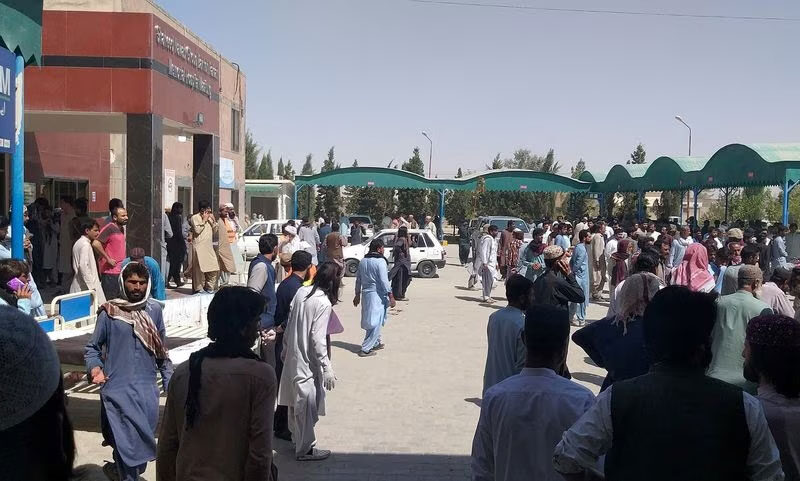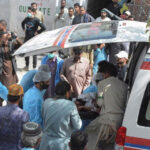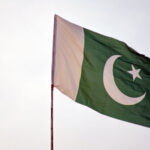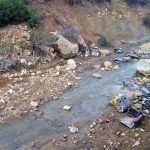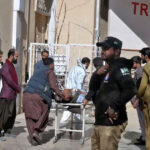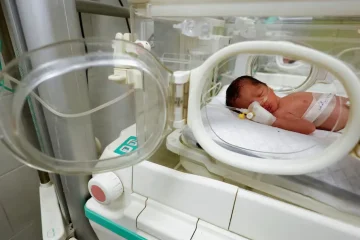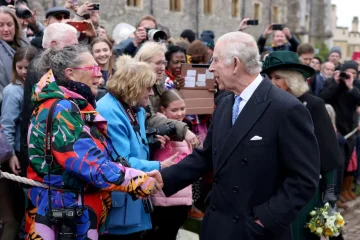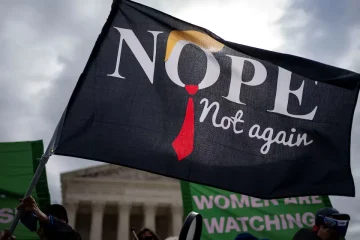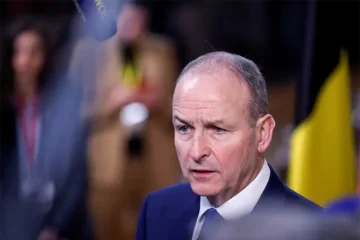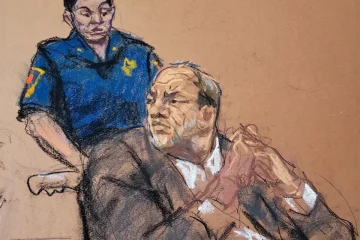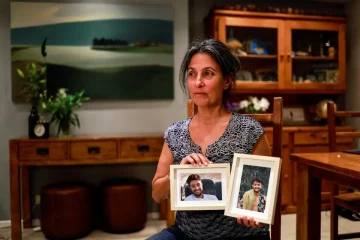SUICIDE bombings ripped through two mosques in Pakistan, killing at least 57 people and injuring dozens more as believers marked the birthday of the Prophet Mohammad, police and health officials said.
No group immediately claimed responsibility for the blasts, one of which was reported to have trapped dozens under rubble.
A surge in militant attacks in Pakistan’s western provinces has cast a shadow on election preparations and public campaigning in the run-up to January’s general elections, but until now the attacks had mostly targeted security forces.
The first blast, in Mastung in the southwestern province of Balochistan, killed at least 52 people, according to district health official Abdul Rasheed, and injured another 58, many of them seriously.
“The bomber detonated himself near a police vehicle near Madina Mosque, where people were gathering for a procession,” added senior police official Munir Ahmed.

The second attack, in neighbouring Khyber Pakhtunkhwa, killed five people at a mosque, according to rescue officials. The roof collapsed, broadcaster Geo News said, trapping about 30 to 40 people under the rubble.
The attack involved two explosions, one of which was at the mosque gate and the other in the compound, an official said.
“Luckily one blast was at the gate so worshippers were able to exit the mosque; as a result the casualties are low,” said the deputy commissioner of Hangu district, Fazal Akbar.
Both provinces border Afghanistan and have suffered attacks in recent years by Islamist militants aiming to overthrow Pakistan’s government and install their own brand of strict Islamic law.
‘CRYING FOR HELP’
“Bodies were strewn in pieces at the site and the injured were crying for help,” said Munir Ahmed Shahwani, at the site of the Balochistan bombing.
He said people were looking for loved ones who had planned to take part in the procession to mark the Prophet Mohammad’s birthday: “I saw at least 25 bodies on the spot, which included small children.”
A deputy superintendent of police was among those killed as he oversaw security arrangements in the area, police said. Television showed hundreds of people helping the injured into ambulances.
The gathering, in which people were carrying flags and banners, was at a mosque belonging to the Barelvi sect, generally considered more moderate than hardline Islamic sects such as Salafism.
Some hardline sects consider veneration of the Prophet Mohammad as heresy.
SURGING ATTACKS
Caretaker Prime Minister Anwar ul Haq Kakar, in Saudi Arabia for the religious pilgrimage of Umrah, condemned the blasts and called for full support for victims.
Kakar heads a caretaker government meant to oversee general elections scheduled for the last week of January.
Militant attacks have surged since 2022 when a ceasefire broke down between the government and the Tehreek-e-Taliban Pakistan (TTP), an umbrella body of hardline Sunni Islamist groups.
The TTP, responsible for some of the bloodiest attacks in Pakistan since its formation in 2007, denied responsibility for Friday’s blasts.
TTP also denied involvement in a Peshawar police mosque bombing in January that killed 100 people, but a faction of the umbrella group later claimed the attack.
In July, more than 40 people were killed in a suicide bombing in Khyber Pakhtunkhwa at a religious political party’s gathering. The Islamic State militant group claimed responsibility for that attack.

